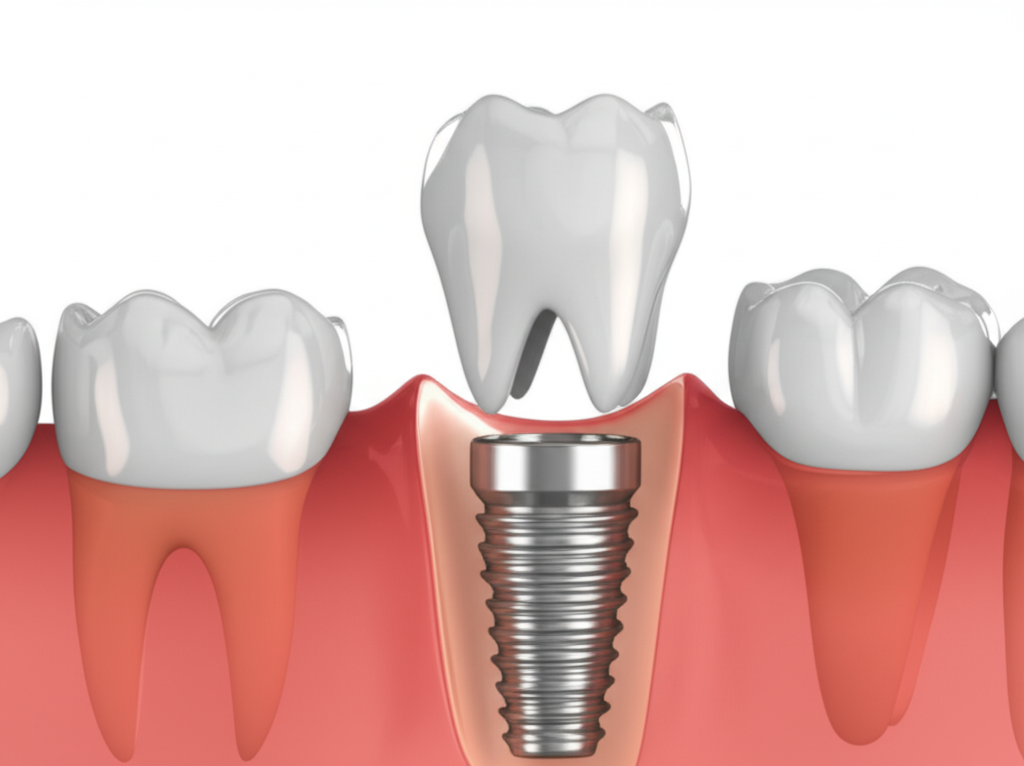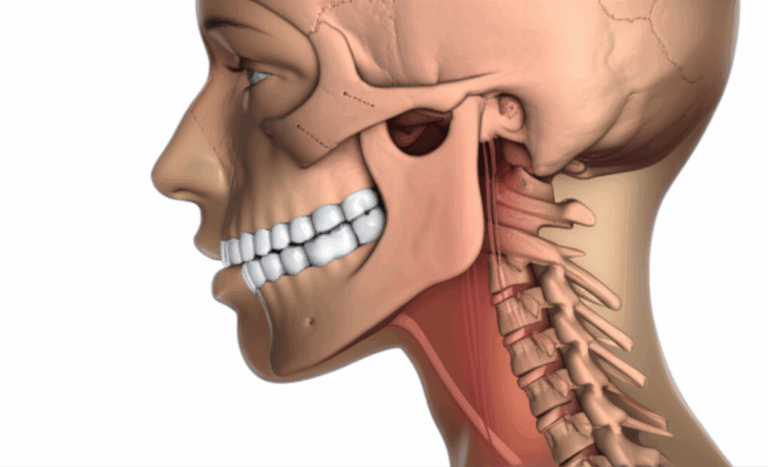
How Strong Are Dental Implants? Understanding Their Durability, Lifespan, and Chewing Power
Have you ever found yourself asking, “How strong are dental implants, really?” Maybe you lost a tooth and are thinking about what to do. Maybe you just want to bite into an apple or have a steak without worrying. You might also wonder: Will dental implants last long? Will they break, or are they really as good as my own teeth? It’s normal to have these worries—a lot of people want honest answers before making such a big decision about their smile.
If you want the main answer right away: Dental implants are made to be really strong, tough, and last a long time. Done right, they can last for decades and let you chew almost as well as you did with your own teeth. But what really makes them strong isn’t just fancy materials. The real “secret” is osseointegration—when your jawbone and the implant fuse together to make a strong base, like the root of a natural tooth. Want to know more? Let’s look at what makes dental implants so strong, why so many people are happy after getting them, and how you can keep yours working their best.
In This Article
- The Foundation of a Strong Smile: Why People Ask About Implant Strength
- The Science Behind Dental Implant Strength: Materials & Osseointegration
- Measuring Implant Strength: How Much Can They Really Handle?
- What Factors Affect Dental Implant Strength and Lifespan?
- How Long Do Dental Implants Last?
- Warning Signs: When Implant Strength Might Be Compromised
- How to Maintain the Strength and Lifespan of Your Dental Implants
- Who Can Dental Implants Help? Are They Right for Everyone?
- Key Takeaways & Practical Next Steps
The Foundation of a Strong Smile: Why People Ask About Implant Strength
Let’s start with the big question:
Why does everyone care so much about how strong dental implants are? It’s all about trust. Losing one or more teeth doesn’t just change how you look—it makes it harder to eat, talk, and feel good about your smile. Dentures can slip, bridges wear out, and nobody wants to spend a lot on something that only lasts a few years.
So, when a dentist says, “Dental implants can last a lifetime and feel just like real teeth!” it’s normal to think, “Sounds too good to be true. Are they really that strong?”
This guide will explain exactly how and why dental implants are so tough, what materials are used, how they work in everyday life, what can affect their strength, and how YOU can get the best results from them.
The Science Behind Dental Implant Strength: Materials & Osseointegration
What Makes Dental Implants So Strong? Osseointegration
Dental implants aren’t just screws or metal posts. They are a mix of smart design and how your body heals. The real magic is something called osseointegration. Imagine the implant as a strong anchor that replaces your tooth root. As you heal after surgery (usually over a few months), your jawbone actually grows around the implant and sticks to it.
Think of a fence post that doesn’t just sit in the dirt but becomes part of the ground. That’s what happens in your jaw, making a tight, steady base for chewing, biting, and even jaw clenching.
Strength Timeline:
- Right after surgery: The implant isn’t yet as strong as it will be; you need to let it heal.
- 3-6 months: Osseointegration is usually complete, and now the implant is as strong—or stronger—than a real tooth root.
Materials: What Are Implants Made Of?
Ever wondered what dental implants are made from? Not just any metal or plastic. The main types are:
Titanium: The Classic Choice
- Body Friendly: Titanium works well in your body, so your bone is happy to grow around it.
- Very Strong: Handles 345-550 MPa (units that measure how tough something is).
- Well-Proven: Has worked well for many years and is great if you want something sturdy.
Zirconia: The Newer Option
- Ceramic, Not Metal: Good for people who want no metal or are sensitive.
- Even Stronger: Bends rather than breaks, up to 900-1,200 MPa!
- Natural Color: Looks more like tooth root, good for front teeth.
- Downside: Not as bendy; think glass compared to steel.
Other Parts
- Abutment: The piece that connects the implant to the crown.
- Crown: The part you see and chew with—often made from zirconia, porcelain, or ceramic, picked for their look and strength. Top crowns usually come from experts in dental ceramics labs.
Measuring Implant Strength: How Much Can They Really Handle?
How Hard Can You Bite?
Let’s look at the numbers. How do dental implants compare to natural teeth in terms of bite power?
- Natural Back Teeth: Handle 100-250 PSI (pounds per square inch) of bite.
- Dental Implants (after healing): Give you about 80-95% of that power, depending on where the implant is and how good your bone is.
This means you can eat pretty much everything you used to, from apples to thick sandwiches.
For comparison, dentures only give you about 20-25% of normal bite power. With implants, most people stop worrying and eat what they want.
Can Implants Break?
A real worry! Here’s the truth:
- Implant Breaking: Less than 1-2% break, even after a long time.
- Most problems are from bone or gum issues, not the implant snapping.
What Factors Affect Dental Implant Strength and Lifespan?
You might ask: “If implants are strong, why do some people have problems?” The answer: strength depends not just on the implant but on your whole mouth and your daily habits. Here’s what matters most:
Stuff About You
- Bone Quality:
Healthy bone is like rich soil for plant roots. Weak bone means a softer base. Sometimes you’ll need bone grafting to build up thin bone before getting an implant.
- Mouth Care:
Think of your mouth as a little garden—skip brushing and flossing, and “weeds” (bacteria) take over! Gum disease (peri-implantitis) can destroy bone if you don’t take care of things.
- Life Habits:
- Smoking: Doubles or triples your chances of problems. Like not watering a plant!
- Grinding or Clenching Teeth: Puts a lot more stress on implants. If this sounds like you, your dentist may make a night guard to protect your implants.
- Medical Problems: Badly controlled diabetes or weak bones (osteoporosis) can lower your odds—keeping healthy helps!
About The Implant and Crowns
- Size and Type:
Bigger, longer implants usually give more support. Using pure titanium or zirconia is key.
People with small jaws or front-teeth needs sometimes get mini implants, which may not be as strong but still work well when put in right.
- How It’s Placed:
Skill matters! A good dental surgeon’s careful work affects how well your implant heals and lasts.
- Crown Quality and Fit:
The tooth part on top should match your bite and be strong enough. Bad fit or weak materials can lead to wear or breaking. Getting crowns made by a top crown and bridge lab helps them work right.
Outside Factors
- What You Eat:
Chewing ice, opening things with your teeth, or eating hard candy can break any tooth—even implants.
- Gum and Bone Health:
Regular dentist visits help catch problems before they can break down your implant.
How Long Do Dental Implants Last?
When people ask “how strong are dental implants,” they often mean, “How long will they last?”
What Really Happens Over Time
Check out these facts:
- 20+ years is common. Many implants last a lifetime if you take care of them. Some studies, 30 years old, show implants still working when other dental work wore out long ago.
- Success Rate: 95-98% over 10 years; 90-95% even after 20 years!
- Problems:
- Breaking the implant itself is rare (less than 2%).
- Crowns may need to be changed every 10-15 years because of normal use—like putting new tires on a car.
What About Problems and Guarantees?
- “Failures” usually come from bone or gum loss (not from the implant snapping).
- Many offices or makers give guarantees on implants. Ask your dentist the details—but if you keep up great dental care, your implant usually lasts.
Implants vs. Other Choices
- Bridges: You need to cut down healthy teeth next to the missing one. Lasts about 7-10 years.
- Dentures: You can take them out, but they’re not very stable and don’t give you back full bite power.
- Implants: The most “real tooth-like” out there—stand alone, strong, and steady.
Want to know how they’re made? Here’s a implant dental laboratory resource to see how implants are built and tested.
Warning Signs: When Implant Strength Might Be Compromised
Even the strongest implant isn’t unbreakable. Watch out and call your dentist if you have:
- Pain or soreness around the implant (especially if new).
- Swelling, redness, or pus at the gum next to the implant.
- Loose implant, crown, or bridge.
- Problem biting or chewing, especially if it’s new or sudden.
If you don’t get these fixed, they could mean infection, bone loss, or—in rare cases—a broken part. The sooner you get help, the easier it is to fix!
How to Maintain the Strength and Lifespan of Your Dental Implants
You made a smart choice—now, take care of it! Implants need lots of care, maybe more than your real teeth.
Home Care
- Brush and floss every day. Use a soft toothbrush and gentle toothpaste. Special floss or little brushes help clean under bridges or around posts.
- Rinse with mouthwash to kill germs (if your dentist says so).
- Night guard if you grind or clench: Don’t let nighttime jaw squeezing ruin your implant.
Visiting The Dentist
- Go for checkups and cleanings: Your dentist and hygienist can catch any issues early and keep both your implants and gums in top shape.
- Stop infection (peri-implantitis): Good mouth care is a must. Swollen gums are bad for implant strength.
What to Eat and How to Live
- Don’t eat super-hard foods (like hard candy, ice, or popcorn kernels), especially while healing.
- Stay away from super sticky or chewy stuff (like taffy or caramel) that can pull on crowns.
- Don’t smoke: It’s bad for your health and is the main reason for implant trouble.
Who Can Dental Implants Help? Are They Right for Everyone?
Let’s bust a myth: Most healthy adults can get dental implants. But, there are a few rules for who is the best fit:
Best Candidates
- Lost one or a few teeth: Implants can replace single teeth or whole sets.
- Good bone in your jaw: Makes placement easier and lasts longer. If you don’t have enough, bone grafting is possible.
- Good mouth care and a willingness to stick with it.
- Don’t smoke (or can quit for healing or surgery).
When Implants Aren’t Ideal (or Need Extra Planning):
- Uncontrolled diabetes
- Serious gum disease that isn’t treated
- On cancer treatment or immune problems
- Kids/teens: Jaw must be fully grown.
- Heavy tooth grinders: Needs a special plan and extra protection.
If you’re not the perfect candidate, don’t worry—your dentist can make a plan that works for you.
Key Data Table: How Strong Are Dental Implants? (by the Numbers)
| Metric / Factor | Figure / Range | Source / Notes |
|---|---|---|
| Implant Success Rate | 95-98% (10 years), 90-95% (20+ years) | Large clinical studies |
| Chewing Power Restored | 80-95% of natural teeth, up to 250 PSI | Better than dentures or bridges |
| Typical Lifespan | 20+ years, often lifetime | Crowns may need periodic update |
| Implant Fracture Rate | Under 2%—rare, usually after years of overloading | Strong titanium/zirconia |
| Smoking Impact | Failure rate 2-3x higher in smokers | Quit or cut back for best results |
| Bone Quality Impact | 5-10% lower success rate in soft/poor bone | Bone grafting may help |
| Peri-implantitis Rate | 10-20% of patients develop some infection if hygiene lapses | Hygiene, checkups, vital |
| Material Strength | Titanium: 345-550 MPa (tensile), Zirconia: 900-1200 MPa (flexural) | Both extremely tough |
Key Takeaways: What You Really Need to Know About Dental Implant Strength
Here’s a quick list you can use or bring when you speak to a dentist:
- Dental implants are one of the toughest, most trusted ways to replace missing teeth.
- Their strength comes from high-quality materials (titanium or zirconia) and from your jawbone joining to them (osseointegration).
- Implants let you chew almost as well as you did with real teeth—the difference is huge for enjoying your life.
- With good care, most implants last decades, often your whole life. Gum and bone health matter the most!
- Life and health choices (smoking, grinding your teeth, diabetes) can affect implant strength; tell your dentist everything and follow their advice.
- If you feel pain, see swelling, or notice looseness, see your dentist soon. Fast action makes fixes much easier.
You don’t have to figure all this out alone. If you want to know more or look “behind the scenes” at how implants and crowns are made, check out a digital dental lab to see how these dental solutions are built especially for your smile.
Your Healthy Smile, Backed by Science and Good Habits
A dental implant isn’t just about filling a gap; it’s about eating, talking, and smiling without worry. Implants are strong, but they need your help—good brushing, flossing, and dentist visits are what keep them strong for years.
Still thinking it over or want expert advice? Book a time with a dentist you trust. Ask about their experience, what materials they use, and how they’ll help you care for your implant in the future. Don’t be shy—ask all your questions! A caring dentist will listen.
Want to eat, talk, and smile confidently again? Dental implants might be the strong, lasting fix you’re looking for.
Want more tips for dental health?
- Learn ways to boost your teeth health
- Read about common dental diseases and how to avoid them
- Discover proven dental care methods
Take care of your mouth—a strong smile starts with you!








